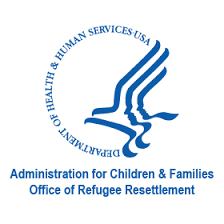The path forward is clear: strengthening household financial security can reduce child abuse and neglect by improving the opportunity for parents to meet their children’s basic needs, provide developmentally appropriate child care, and reduce parental stress and depression, both risk factors for child abuse and neglect. Overall, research has shown that children in households with low socioeconomic status experience “neglect” at about seven times the rate of other children and that risk factors for child abuse and neglect include low parental income, parenting stress, community violence, and concentrated neighborhood disadvantage (e.g., high poverty and residential instability, high unemployment rates).Systemic racism compounds these challenges associated with poverty for families of color, driving them to the attention of child welfare at disproportionate rates. In some situations, poverty is equated with neglect when families living in poverty are unable to meet their basic needs and other times, poverty can be a compounding factor and contribute to circumstances that lead to neglect as families living in poverty have a significantly higher likelihood of experiencing crises. Research has also shown that stress from factors associated with poverty, and the stress of not being able to provide day-to-day necessities, can increase the risk of parenting difficulties and can lead to parents feeling anxious, depressed, fearful, and overwhelmed. To truly take an anti-racist approach to prevention, child welfare and safety net policies must address the organizational structures and injustices contributing to and perpetuating systemic racism and to meet the underlying economic and concrete needs of children and families. The policies highlighted below can make a significant impact for children and families when implemented as part of a multi-pronged approach to supporting the needs of children and families outside of child welfare.
Expand Tax Credits
Recent research examined the effect of Earned Income Tax Credit (EITC) on foster care entries by comparing states with and without a state-level EITC. After controlling for poverty rates, unemployment, education, and race/ethnicity, researchers found that state-level EITC is associated with an 11 percent decrease in foster care entry rates. Research on the expanded Child Tax Credit of 2021 found that it reduced parental stress while improving food and financial security, especially for Black, Latinx, and other families of color. The impacts on child poverty were dramatic, as it reduced monthly child poverty by an estimated 30 percent overall, lifting 163,000 Asian children, 737,000 Black children, 1.4 million Latino children, and 1.4 million White children above the federal poverty line.
Expand Medicaid Coverage
A recent study of Medicaid expansion found that in states that expanded Medicaid, there was a decrease in overall cases of neglect (422 per 100,000 children) for young children. This study also found that between 2013 and 2016, rates of neglect decreased in the 31 states that expanded Medicaid on or after January 1, 2014, and in the remaining 19 states that did not expand Medicaid, child neglect rates increased.
Increase the Minimum Wage to a Livable Wage
The effect of minimum wage increases on child maltreatment has been studied by analyzing hotline reports between 2004 and 2013 using data from the National Child Abuse and Neglect Data System. For every dollar increase in the minimum wage, there was a corresponding 9.6 percent reduction in neglect reports. These reductions were seen primarily for young children under age 12.
Expand Access to Food Security Support Programs
Access to healthy food is critical to a family’s ability to thrive and reduces parental stress. A recent study found that states with expanded eligibility and family-supportive Supplemental Nutrition Assistance Program (SNAP) policies, including transitional benefits for families who leave the Temporary Assistance for Needy Families (TANF) program, had fewer children involved with child welfare. Currently, Black and Hispanic households are more than twice as likely compared to White households to experience food insecurity and data gathered during the COVID-19 pandemic found that Black and Latinx families suffered disproportionately during this time, highlighting the importance of food security an essential anti-racist, family strengthening strategy.

